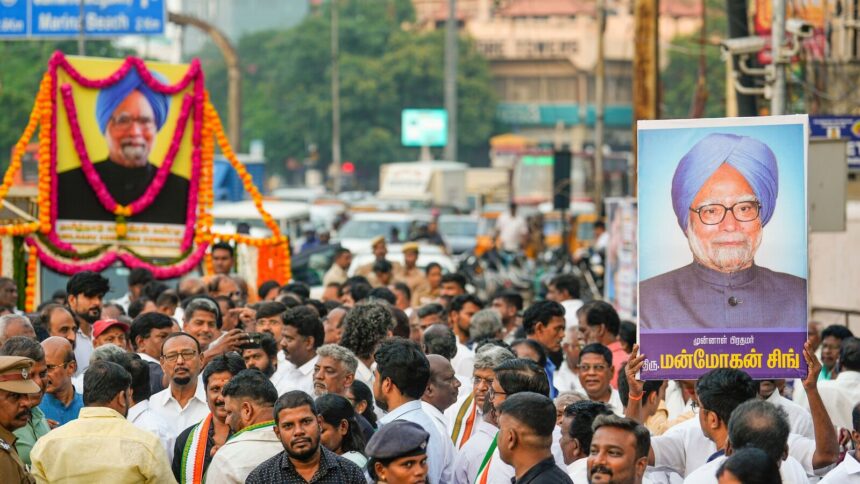Navigating the Political Landscape: A Focus on Delhi University’s Naming Debate
In the ever-evolving arena of Indian politics, the naming of institutions often becomes a litmus test for ideological allegiances and societal values. A recent development highlights this interplay, as the National Students’ Union of India (NSUI), the student wing of the Indian National Congress, has appealed to Prime Minister Narendra Modi to name a new college at Delhi University after former Prime Minister Manmohan Singh, rather than Hindutva ideologue Veer Savarkar. This issue encompasses broad themes related to educational values, historical legacies, and the ongoing tug-of-war between different political ideologies in India.
The Context of the Appeal
The NSUI’s letter to PM Modi arises from a growing concern among students and educators about the influences shaping educational institutions in India. They argue that Manmohan Singh, who served as Prime Minister from 2004 to 2014, is a more fitting choice due to his significant contributions to education and economic reform. Singh is often credited with liberalizing the Indian economy in the 1990s and implementing policies that advanced the education sector, thereby making higher education more accessible to a broader segment of the population.
In contrast, naming the college after Veer Savarkar, a prominent figure in the Hindutva movement, raises red flags for many, particularly those who advocate for a secular and inclusive educational framework. Savarkar’s legacy is contentious; while he is celebrated by certain groups as a freedom fighter and a nationalist hero, many critics label him as a divisive figure whose ideologies could potentially undermine societal harmony in a diverse nation.
Historical Significance of Manmohan Singh
Manmohan Singh’s tenure marked a pivotal period in India’s modern development. He was instrumental in steering the country through times of economic challenge, promoting globalization, and encouraging foreign investment. His policies not only transformed India’s economic landscape but also expanded opportunities for millions, particularly in education and public health.
As an educated economist with a vision for a progressive and modern India, Singh’s legacy is one that resonates with values of inclusivity, rational policymaking, and democratic principles. This proposed shift to honor Singh at Delhi University seems to reflect a generation looking to reclaim a narrative focused on those who prioritize development and unity over division.
The Significance of Delhi University
Delhi University stands as one of India’s premier educational institutions, playing a critical role in shaping future leaders and thinkers. As the alma mater of numerous political and cultural leaders, its naming conventions carry significant weight. The decision regarding whom to honor in this context is not just a matter of naming but speaks to the values and priorities of the society that chooses these names.
The NSUI’s appeal is symbolic of larger student sentiments voicing a desire for historical recognition: a push against what many perceive as an attempt to rewrite history in favor of ideologies that may not represent the entire spectrum of Indian society.
The Broader Political Implications
The naming issue touches on broader themes of political identity and the struggle over public memory in India. As political parties vie for influence, the naming of institutions can become a miniature battlefield, reflecting larger ideological conflicts. The ruling BJP’s focus on Hindutva and efforts to elevate figures like Savarkar highlight a stark ideological divide, while opponents advocate for a legacy based on democratic values and inclusive growth.
Conclusion: The Call for Dialogues and Compromise
As this appeal captures the attention of policymakers and students alike, it serves as a reminder that the realm of education is deeply intertwined with politics. It calls upon leaders to engage in dialogues that honor various narratives and contributions, promoting an inclusive educational environment.
The debate over Delhi University’s new college naming is not simply a local issue; it is emblematic of the broader political currents in India today. Viewing this through the lens of both educational integrity and historical awareness can pave the way for constructive conversations about how society remembers its past while shaping its future. As stakeholders navigate these complex waters, the hope is for a resolution that respects both historical significance and the need for unity in diversity.
This ongoing discourse promises to further illuminate how education, politics, and ideology continue to intersect in contemporary India, thereby shaping the nation’s identity for generations to come.










